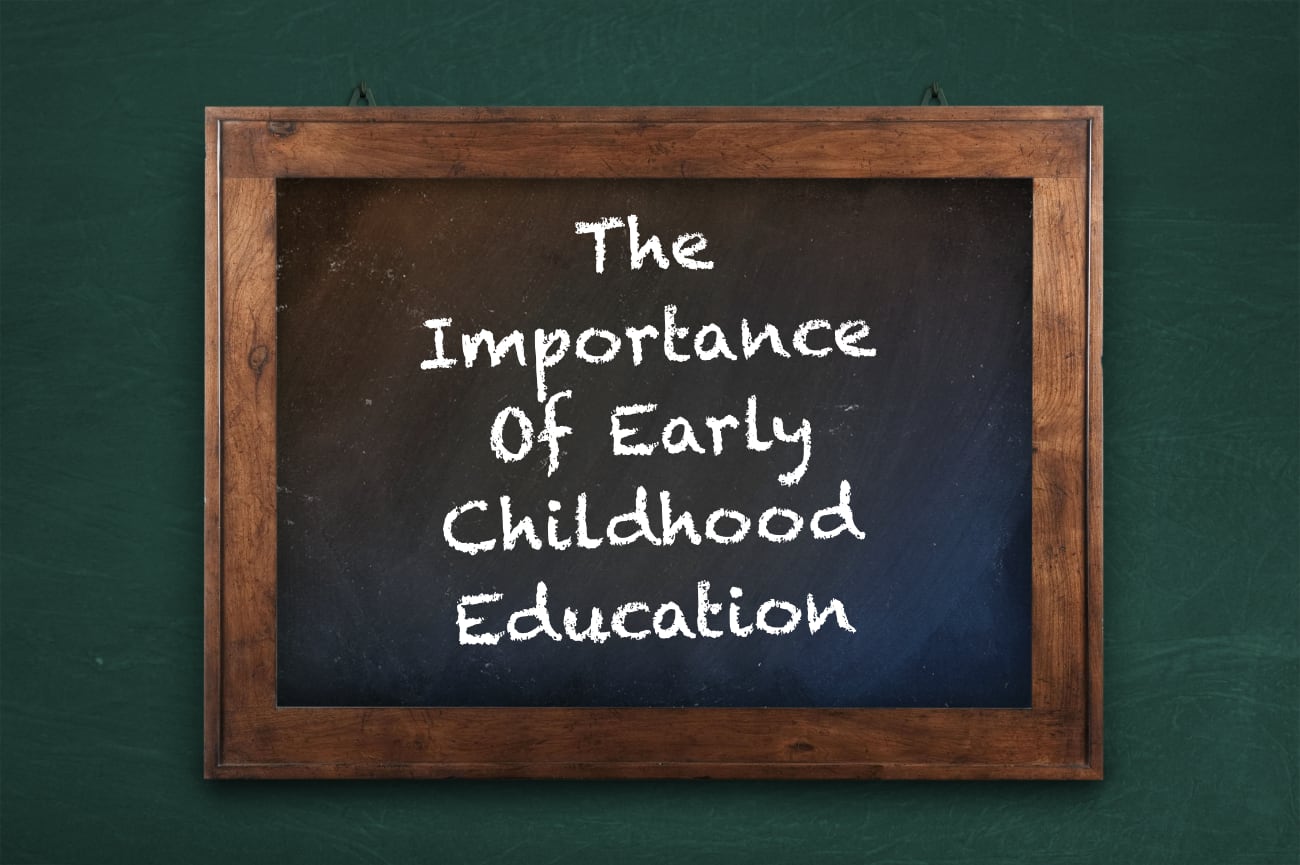The Importance Of Early Childhood Education
Discover the main benefits of play for children's development
Early childhood is an intense period of development. For it to be effective during this period, it is necessary to stimulate a child, to motivate them to be active. Brain cells develop in response to external stimuli. Therefore it is important to organize the space around the child, properly plan their day, and give them enough attention to encourage their development.
If you are one of those busy parents who is trying to gain new knowledge on childhood development to use it in practice but at the same time you are an MBA student who has assignments to do, you might need help to cope with all your tasks at some point. In such cases, we recommend contacting professional writing services where you can easily order a business plan or a research paper and just rest for a while.

Early development implies the organization of proper space around a child. Toys, pictures, furniture, and gadgets that surround the baby should help them to learn about the world around them. This approach to education allows you to raise a mentally and physically healthy person who is ready to live in today's society.
To create a space beneficial for the early development of your child, you need to pay attention to:
- Home environment. In the first months of life, the baby's main space is the crib. Therefore, it is worth paying special attention to its choice. Also, use different fabrics and materials when decorating the room, as the child can get acquainted with different types of surfaces by touching them.
- Toys. If they match the age of your child, they will be useful. Children should easily access toys that are relevant to their age.
- Communication. Through communication, your child learns about the world around them. Parents' conversations, hugs, and strokes are the most important factors in harmonious development.
- Physical development. A child's health depends primarily on their physical development. We are talking about a child's fine motor skills, proper nutrition, outdoor activities, active games, etc.
Early childhood development is a set of activities aimed at the adaptation of a young person in the modern world. Regardless of the chosen method of development and learning, it is worth paying attention to such factors:
- Brain adaptation. Early preschool age is characterized by the flexibility of the child's mental health. Nature intended that during this period, a baby needs to learn as much as possible about the world. They learn to walk, talk, manipulate objects, water, sand, try different patterns of behavior, improve all the acquired skills, and learn new ones. Depending on the level of maturation, the brain performs particular functions. Every day, the amount of knowledge and skills acquired grows. The more you talk to your child, the more information they learn about the world.
- Aesthetic education. For the full development of a child, it is extremely important to pay attention to their aesthetic education i.e. developing creative abilities, talent, forming a sense of taste. It is important to play classical music, expose kids to sounds of nature, children's songs, etc. They should hear poems, immerse themselves in the world of fairy tales and stories as it develops imagination, memory, and thinking.
- Fine motor skills and creativity. It is important for a child to draw, model from clay, dough, and cut out paper. Such activities develop fine motor skills, thinking, imagination, creativity.
Between the ages of two and three, a child learns to be independent. During this period, it is important not to hinder them, but to encourage their efforts and achievements. Here are some tips from psychologists for parents of 2-3-year-old children:
Let your child be independent. If your child wants to put on a jacket by themselves, let them do it, even if you are late for kindergarten.
Do not limit your child's social circle. Every person in your child's environment is important to them.
Explain to them everything they do not understand. Everything in this world is new for them, so allow them to learn. Even if you have to repeat the same thing ten times, repeat it calmly and confidently.
Allow them to choose. Let them choose their toy, clothes, or dish for dinner. They want and need to feel their importance.
Another important aspect of a child's early education is playing. Through play children's brain and language skills develop better.
Try simple games like peek-a-boo, playing with dolls or toys, kite flying, or just singing songs. They would help your child's motor and problem-solving skills development.
Show your kids how a rock or a leaf can fall, how a snowflake melts, and try to explain these physical phenomena. Do not underestimate how crucial these early childhood games are in building the basis for formal schooling.
Here are 5 main benefits of play for children's development:
- It's necessary for brain development
Through play, children learn to think, recall, reason, and pay attention. While having fun they also develop problem-solving abilities, patience, and a variety of other talents.
- Obesity lowering
Toddlers who have plenty of opportunities to run, jump, and play are more likely to develop physical confidence and, as a result, to remain active and healthy throughout their lives.
- Helps families bond
By contributing to early children's education parents get more comfortable and supportive relationships with their kids. Children will have talks and interactions with their parents via play, which will develop emotional connections and help them learn to manage their emotions.
- Creative thinking
Playing promotes a child's imagination, which is perhaps the most evident benefit. While playing children might need to look for various solutions, ideas and be creative in their approaches. As a result, they develop creative thinking which is essential for their future life.
- Improves ability to communicate
Children typically share their thoughts and communicate a lot when playing. Thus, communication skills develop naturally without external pressure.
